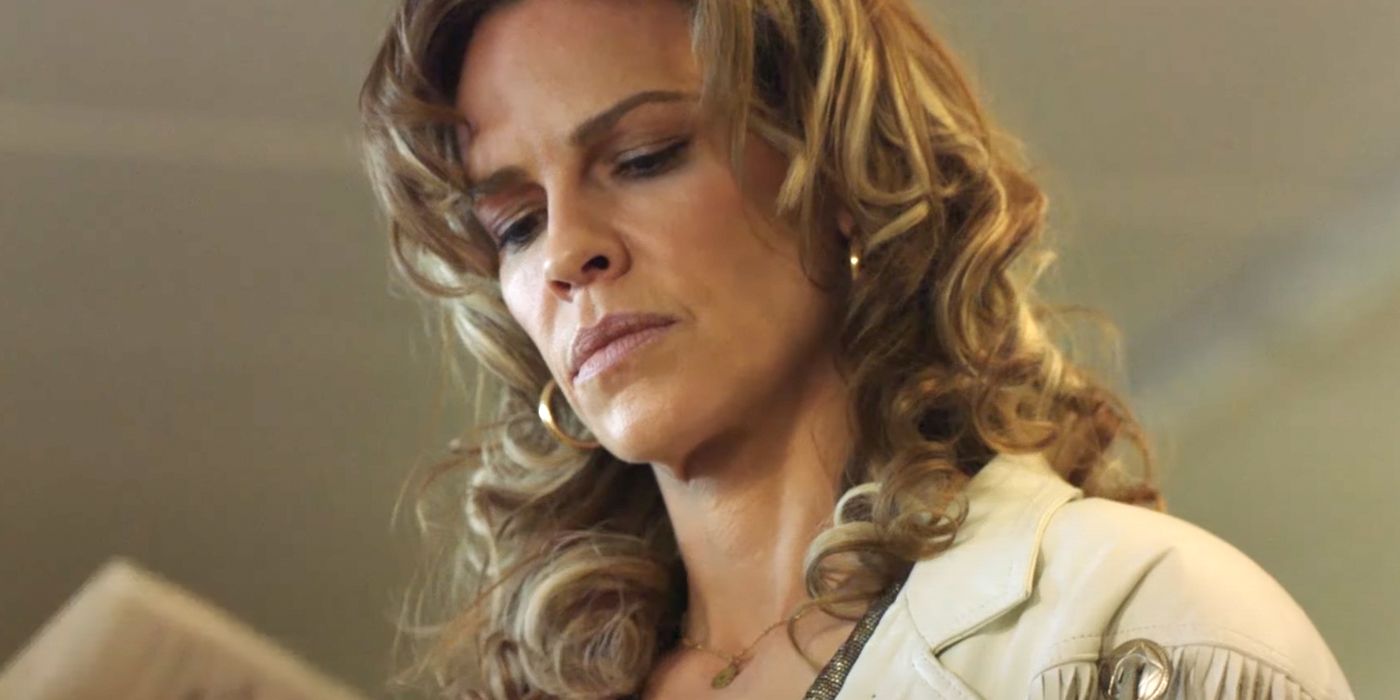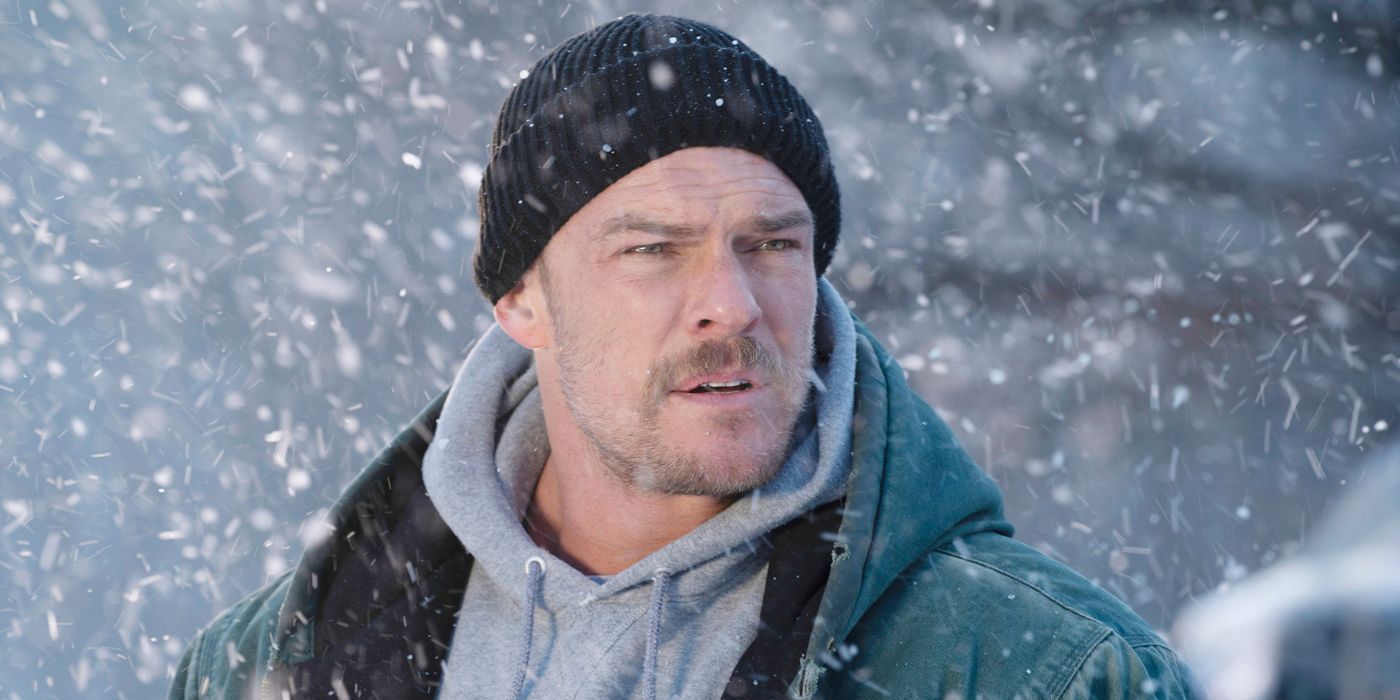The film is an emotionally manipulative, paint-by-numbers drama about a community rallying around a sick little girl.

THE BIG PICTURE
Hilary Swank brings spunk and charisma to her role, but the script falls into clichés and lacks depth.
The emotionally manipulative storytelling and unclear character motivations detract from the film.
The climax is drawn out and loses its impact, leaving the viewer feeling underwhelmed.
Nobody does scrappy and determined quite like Hilary Swank. Be it as a working mother who puts herself through law school in Conviction, a journalist trying to bring the murders of Indigenous women to light in Alaska Daily, a teacher overcoming odds to demand a classroom in Freedom Writers, or a fighter in a boxing ring in Million Dollar Baby, Swank has found her niche playing women who aren’t afraid to break rules and tradition to do what’s right.
It’s a familiar character that’s right within her wheelhouse. Sadly, it — and the entire movie — ends up feeling much too familiar. It’s more a conglomeration of other films (there’s more than a little Miracles from Heaven here) than something new and original.
Ordinary Angels
Drama
Inspired by the incredible true story of a hairdresser who single-handedly rallies an entire community to help a widowed father save the life of his critically ill young daughter.
Release Date: February 23, 2024
Director: Jon Gunn
Cast: Alan Ritchson , Amy Acker , Hilary Swank , Nancy Travis
Runtime: 116 minutes
What Is ‘Ordinary Angels’ About?
We start our story at the hospital where Ed’s wife, Theresa (Amy Acker), is giving birth to their daughter Michelle (Emily Mitchell). The two are clearly in love, with humor and their faith at the center of their marriage. We then fast-forward a few years to them at the hospital again, although for a different, much less joyful reason this time — Theresa is dying from Wegener’s disease.
It feels a bit insensitive to be critical considering the film is based on a true story and, therefore, real people, but the way director Jon Gunn chooses to present them feels even more egregious. The choice to open with the dual hospital scenes is immediately emotionally manipulative — a warning to the audience that this film is going to pull every trick in the book to try and make you cry over the next two hours. What’s more, this script reduces Theresa to a plot device.
We only see her giving birth and dying, with her personality thin and one-dimensional, and references to her after her death are just as vague. Instead of feeling like a fully fleshed-out person, Theresa is presented as a necessary narrative sacrifice so Ed can go on a painful journey. It doesn’t sit right.
In addition to grieving his wife and trying to be a single father to Michelle and his older daughter, Ashley (Skywalker Hughes), Ed is struggling with ever-increasing medical bills. If his wife’s death wasn’t tragic enough, Michelle is also gravely ill and in dire need of a liver transplant. Ed’s mother, Barbara (Nancy Travis), helps out where she can, but Ed still feels alone.
Enter: Sharon Stevens. We first meet her under very different circumstances, as she’s throwing back drinks at a bar and dancing on tables. She seems carefree and fun-loving, but her friend Rose (Tamala Renee Jones, frustratingly relegated to the token Black best friend trope) is concerned about her, forcing her to go to an AA meeting.
Though Sharon resists, a speech about finding purpose clicks with her while there. She takes this advice immediately, reading a newspaper article about Michelle’s condition and spontaneously showing up at Theresa’s funeral, introducing herself to Ed and his daughters. She quickly becomes enmeshed in their lives, from helping gather money for Michelle’s treatment to stepping in to babysit when Barbara injures herself.
This all culminates in one stressful, snowy day when Sharon, Rose, and the entire town must band together to get Michelle to the hospital in time to receive an available liver. From calling in favors for planes and helicopters to quick problem-solving when the weather throws even more obstacles at them, the community banding together is undoubtedly inspiring.
But the impact fizzles considering how long it drags on, with this final challenge taking half an hour to get through — a quarter of the entire movie. That’s time that would have been better spent developing its characters beyond their clichés and oversimplified motivations.
‘Ordinary Angels’ Is as Formulaic as They Come

While Sharon is undoubtedly the most compelling character, with Swank bringing the blunt, rough-around-the-edges spunk and ambition of Julia Roberts in Erin Brockovich, she’s also the most puzzling.
It’s still hard to understand exactly why she got so involved with this particular family besides it simply being the nice thing to do. The film tries to explain it to us — her own mother was awful to her, and nobody tried to save her; by saving Michelle, she’s trying to save herself — but the explanations feel contrived and ring false.
Her other struggles feel placed there for convenience, too — particularly her alcoholism and relationship with her estranged son. The script doesn’t seem to have a firm handle on either plotline, glossing over them before wrapping them up in tidy little boxes with neat little bows.
Swank does her best with the material she’s given, breathing life into the thinly drawn character and adding dimension with pure charisma.
The best parts are when we see just how smart and business savvy Sharon is, preparing Ed for job meetings and going up against the system to get his family’s medical debt erased. “Life’s about saying yes and then figuring out how,” she insists. One can’t help but wish the movie leaned into her fighting against the unfair healthcare system.
Instead, the film essentially gives us a dual protagonist in Ed. The dynamic between him and Sharon has the potential to be interesting, but their relationship is ultimately lackluster. He has trouble accepting Sharon’s help and saying thank you because of his pride, but the film feels too scared to ever give him any real flaws.
Sure, he snaps at his mother once, though he comes off as hardworking and good-hearted but shockingly passive the majority of the time. The fact they find common ground when all is said and done should be a cathartic moment, but it’s hollow considering how tame and murky their conflicts are leading up to it.
The Talented Cast Can’t Save ‘Ordinary Angels’

The other Schmitts fare even worse. Barbara is there to be supportive and occasionally comic relief, while Ashley and Michelle are there to be precocious and adorable and not much else. They enthusiastically accept Sharon into their life without hesitation, suffering seemingly little to no trauma from just losing their mother.
Everything about Michelle’s actions is on the nose, going from somewhat affecting to eye-roll-inducing. The message of her favorite story is about the difference you can make by helping just one person, and she rambles about what she wants to be when she grows up. Mitchell is a talented young actress, but the lack of subtlety again brings attention to how calculated everything is.
The film takes place in the mid-90s, and frankly, it feels like it was made around the same time, too, though in a dated way rather than an authentic or nostalgic one with its stereotypical characters and straightforward direction. Mid-budget, family-friendly dramas like this have gone by the wayside, which is a shame.
Unfortunately, the paint-by-numbers approach of this film will likely do little to revitalize this kind of film. There’s a fascinating and beautiful true story at the core of Ordinary Angels, but the bland way it’s told does it a massive disservice.
It’s a film that tries so hard to make you cry that it comes off disingenuous, and everything ends up feeling so manufactured that you’ll leave feeling very little at all.
News
‘Reacher’ star gets political again, decries an ‘entire platform by those who mostly claim to be Christians’
Last month, actor Alan Ritchson slammed Christian Trump voters for supporting a ‘con man’ Fox News contributor Joe Concha joined ‘Fox & Friends First’ to discuss actress…
Reacher Star Alan Ritchson Rips Hateful Poltics On Heels Of Anti-Trump Rant — Says Was ‘Met With Violence’ For Speaking Out
Reacher actor Alan Ritchson tore into what he sees as hateful politics from people claiming to be Christians and said he is “met with violence” instead of generosity when he…
5 Reacher Characters Ranked By Their Chances Of Appearing In Season 3
Characters do not usually reappear in Lee Child’s Jack Reacher books, but some characters might still return in the 3rd season of Amazon’s Reacher. Custom Image by…
Reacher Season 3 Casts Chicago Med’s Brian Tee as Big Bad Quinn — Here’s Everything Else We Know
The proverbial body is still warm on Reacher Season 2, and already we have fresh intel on what the Prime Video hit’s third season will bring us. Reacher Season…
Alan Ritchson – Fast & Furious Star Threatened With Violence By Trump Fans
Alan Ritchson, who is basically known for playing Jack Reacher in the Amazon series Reacher, has expressed strong criticism toward individuals who claim to be Christians but, in his…
Reacher season 3 premiere date: A May 2024 update
With us know set to dive head-first into the month of May, what more can be noted about a Reacher season 3 premiere date? The first thing that we…
End of content
No more pages to load











